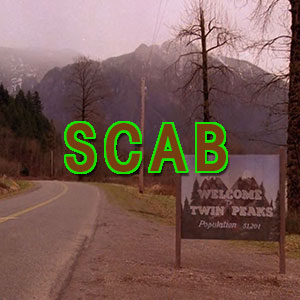
Cancelling creativity in schools is racist
I remember meeting a very impressive team from Watford College at the D&AD New Blood awards in 2019. They had just won a Black Pencil for a brilliant campaign encouraging black women to swim. 70% of black girls can’t swim and black children are 5.5 times more likely to die drowning than white kids. The team did some great research and discovered cultural reasons for this, which led to them creating a fantastic idea that you can watch here.
By the way, this team is white.
Statistically, they were bound to be white. Plenty more white people apply to advertising colleges and art schools. There are lots of reasons for this, and the industry is trying to do lots of things to address this, but the ways in which we teach our young is damaging the creative potential of people of colour more than it damages white people.
I see this problem first hand because half our students receive industry-funded scholarships. We have to work twice as hard to find people of colour, or harder, because relatively few apply. We literally struggle to give away free places at the world’s leading advertising school.
I’m going to try to explain why I think this is, speaking as an old, white, balding, male Jew.
Malcolm Gladwell’s first book, Tipping Point, asked questions such as ‘Why are Asians good at math?’ and ‘Why are there so many Jewish Doctors and Lawyers?’ Ultimately, I felt that he put this down to the stories that immigrant families tell each other.
Quite rightly, good parents take a close interest in the academic endeavours of their children and want the best future for them. Black parents who, on average, earn less than white parents, know the unlimited potential of their kids and how much harder they might be expected to work in order to achieve success in an institutionally racist system.
For example, the concept of Saturday Schools is quite common for black children and almost unheard of for white ones. Children from black families are more likely to attend a failing school, where they are unlikely to learn much black history. It’s why there is an association of Black Supplementary Schools, serving communities who dream of a better future for their sons and daughters, in an environment where they can study their culture.
STEM subjects are prioritised over all other subjects in these Saturday schools, because that’s what the education system wants us to prioritise.
There are many ways to measure intelligence, including the classic ways that secondary schools and universities value most, such as Logical/Mathematical and Linguistic/Verbal. Others such as Visual/Spatial or Bodily/Kinesthetic don’t get much attention, which reduces the opportunity for us to discover and nurture talent.
The psychology of Flow teaches us that we grow towards genius levels when we spend ten years (10,000 hours) in the state of Flow. We are in Flow when we are pushing ourselves just beyond our current ability, doing something a bit demanding, and learning from constructive, real-time feedback. Opposites of Flow can include anxiety, stress and boredom.
Well-funded schools sell themselves to wealthy parents by providing a diverse curriculum, so that every child gets the chance to discover the subjects that take them towards Flow, and those that invoke anxiety and boredom. Talent gets nurtured and stands a chance of being noticed and supported by parents.
This is even more true in wealthy communities, because these families are more likely to know people who earn a living in creative vocations, which means that they can see a future. People from working class backgrounds are very unlikely to know much about the creative economy, let alone have the connections.
The government recently approved huge cuts in funding creative courses in secondary schools and colleges, which means that 90% of all secondary schools are now planning to cut art classes. Instead, they should be employing art teachers, supporting them to help guide creative talent towards opportunity.
A 14 year-old child of colour will be much less likely to be given the time and support to discover their creative potential, and what it feels to be around like minded creative people. They might practice the arts at home, supported by their parents – to a point – so long as it doesn’t get in the way of studies.
It has always been difficult to persuade parents from immigrant families that their children could thrive in the creative economy, but this has become exponentially more challenging now that the pathways from GCSE to A-Level to Foundation Art Degree are being eroded by our reckless government.
Children in wealthy neighbourhoods will be the last to experience these cuts. Children attending private schools won’t feel them at all. As a consequence, the arts will become increasingly exclusive and out of reach.
That’s why cutting the budgets for creative education is racist, and damaging for our society.











